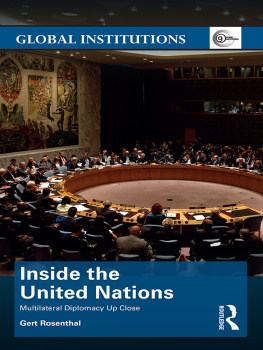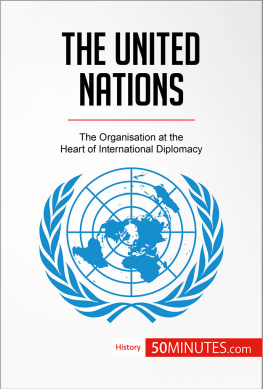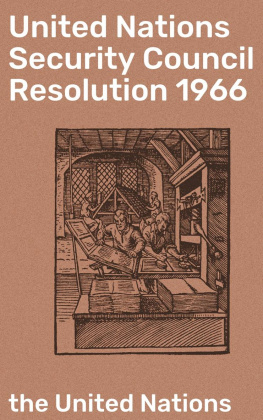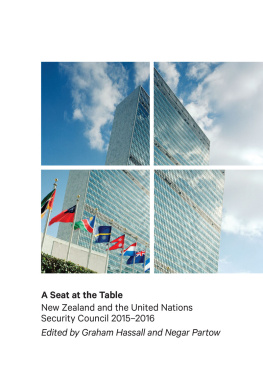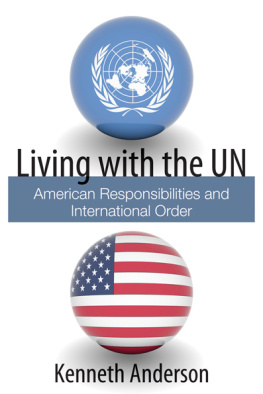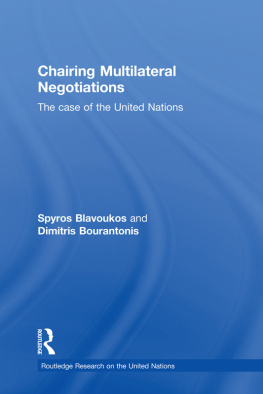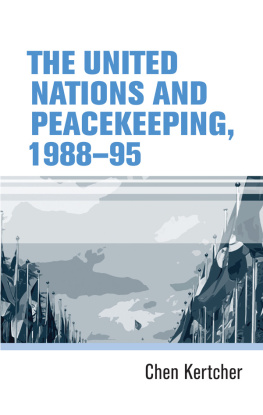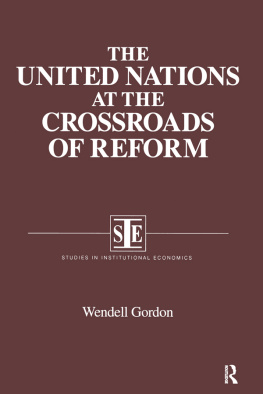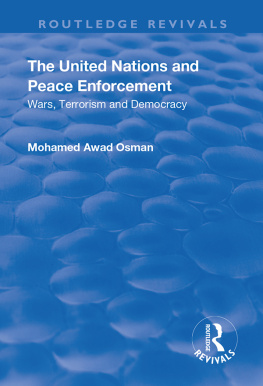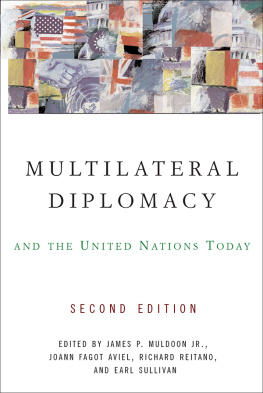I highly recommend this volume to anyone who wants to know how the United Nations really works. Nowhere else could one find so much wisdom about the world body packed into so few pages. From his unparalleled experience Ambassador Rosenthal draws invaluable lessons for diplomats, policymakers, scholars, and representatives of civil society.
Edward C. Luck, Professor of Professional Practice, Columbia University and former Special Adviser and Assistant Secretary-General, the United Nations
This admirably slim, deeply wise volume from one of Latin Americas leading social scientists assesses unsentimentally and in-depth a set of important negotiations in which he was involved at the United Nations, generally in a leading role, over nearly two decades. The narrative achieves a deep dive into intra-UN dynamics
David Malone, Rector of the United Nations University and Under-Secretary-General of the United Nations
Gert Rosenthal has written a fascinating and important book. Very few people can have seen this hidden landscape from as many different perches as Ambassador Rosenthal. This text will be an indispensable primer for diplomats and policy makers at the UN as much as for students and scholars of multilateral diplomacy.
Sarah F. Cliffe, Director, Center on International Cooperation, New York University
Inside the United Nations
This book illustrates the parameters surrounding consensus-building at the United Nations, seeking to provide new insights beyondwhat is already known. The author spent twelve years as P.R. of Guatemala at the UN, offering him privileged observatories in all three of the main inter-governmental organs: the General Assembly, the Economic and Social Council, and the Security Council. In this book Rosenthal focuses on six case studies that offer the breadth and scope of what the UN does, and illustrate some of the main elements of the dynamics of consensus-building, providing concrete examples of the ingredients that shape decision-making in a multilateral setting. The chapters:
cover the origin and preparation and outcome of two successful international conferences: the 2000 Millennium Summit and the 2002 International Conference on Financing for Development;
look at the 2000 negotiation on the scale of assessments to finance the United Nations budget in the General Assemblys fifth committee (20002001);
focus on the relevance of the Economic and Social Council, deriving from the authors stewardship as its President in 2003;
focus on the relevance of the Economic and Social Council, deriving from the authors stewardship as its President in 2003;
reflect on the peculiarities of decision-making in the Security Council.
Providing an insiders view on the UN and exploring a different facet of multilateral diplomacy at the UN this book will be of great use and interest to scholars of international relations and the diplomatic community.
Gert Rosenthal is a Guatemalan economist. He has alternated his career between public service in Guatemala and international organizations. He was Secretary-General of the National Planning Secretariat before joining the UN Economic Commission for Latin America and the Caribbean, where he served as Executive Secretary. After retiring from the UN secretariat he served as Permanent Representative of Guatemala to the UN, then as Foreign Minister, followed by a second tour to the UN to lead the Guatemalan delegation to the Security Council. He was the Chair of the Advisory Group of Experts for the 2015 review of the UNs peacebuilding architecture.
Global Institutions
Edited by Thomas G. Weiss
The CUNY Graduate Center, New York, USA
and Rorden Wilkinson
University of Sussex, Brighton, UK
About the series
The Global Institutions Series provides cutting-edge books about many aspects of what we know as global governance. It emerges fromour shared frustrations with the state of available knowledgeelectronic and print-wise, for research and teachingin the area.The series is designed as a resource for those interested in exploring issues of international organization and global governance. And since the first volumes appeared in 2005, we have taken significant strides toward filling conceptual gaps.
The series consists of three related streams distinguished by their blue, red, and green covers. The blue volumes, comprising the majority of the books in the series, provide user-friendly and short (usually no more than 50,000 words) but authoritative guides to major global and regional organizations, as well as key issues in the global governance of security, the environment, human rights, poverty, and humanitarian action among others. The books with red covers are designed to present original research and serve as extended and more specialized treatments of issues pertinent for advancing understanding about global governance. And the volumes with green coversthe most recent departure in the seriesare comprehensive and accessible accounts of the major theoretical approaches to global governance and international organization.
The books in each of the streams are written by experts in the field, ranging from the most senior and respected authors to first-rate scholars at the beginning of their careers. In combination, the three components of the seriesblue, red, and greenserve as key resources for faculty, students, and practitioners alike. The works in the blue and green streams have value as core and complementary readings in courses on, among other things, international organization, global governance, international law, international relations, and international political economy; the red volumes allow further reflection and investigation in these and related areas.
The books in the series also provide a segue to the foundation volume that offers the most comprehensive textbook treatment available dealing with all the major issues, approaches, institutions, and actors in contemporary global governanceour edited work International Organization and Global Governance (2014)a volume to which many of the authors in the series have contributed essays.
Understanding global governancepast, present, and futureis far from a finished journey. The books in this series nonetheless represent significant steps toward a better way of conceiving contemporary problems and issues as well as, hopefully, doing something to improve world order. We value the feedback from our readers and their role in helping shape the on-going development of the series.
A complete list of titles can be viewed online here: https://www.routledge.com/Global-Institutions/book-series/GI.
The most recent titles in the series are:
International Institutions of the Middle East (2017)
by James Worrall
The Politics of Expertise in International Organizations (2017)
edited by Annabelle Littoz-Monnet
Obstacles of Peacebuilding (2017)
by Graciana del Castillo
UN Peacekeeping Doctrine in a New Era (2017)
edited by Cedric de Coning, Chiyuki Aoi, and John Karlsrud
Global Environmental Institutions (2nd edition, 2017)
by Elizabeth R. DeSombre
Global Governance and Transnationalizing Capitalist Hegemony (2017)
by Ian Taylor
Human Rights and Humanitarian Intervention (2016)
edited by Elizabeth M. Bruch

